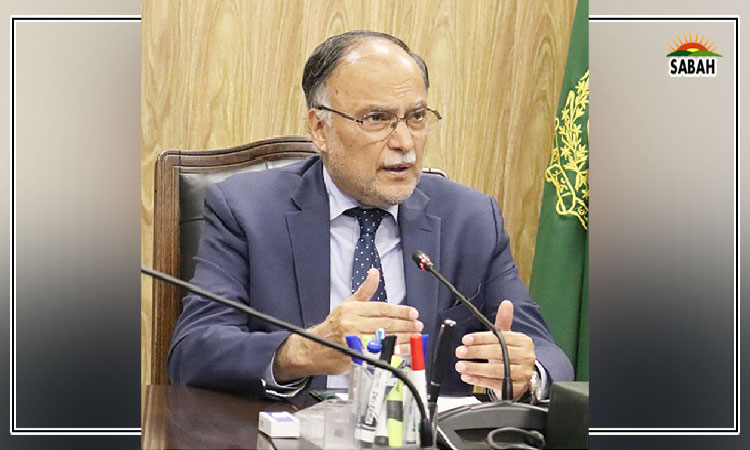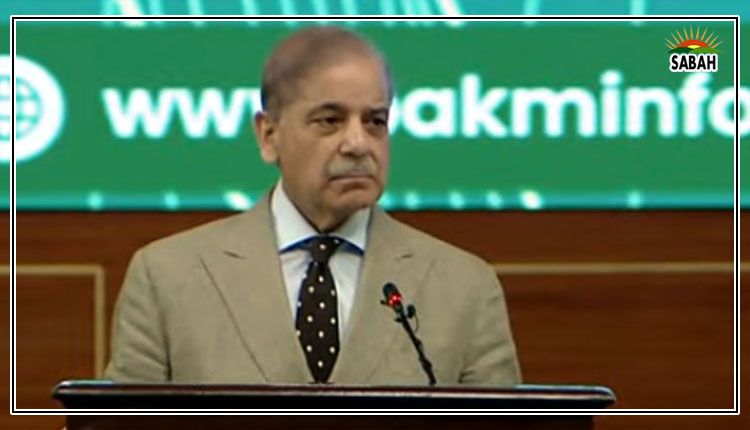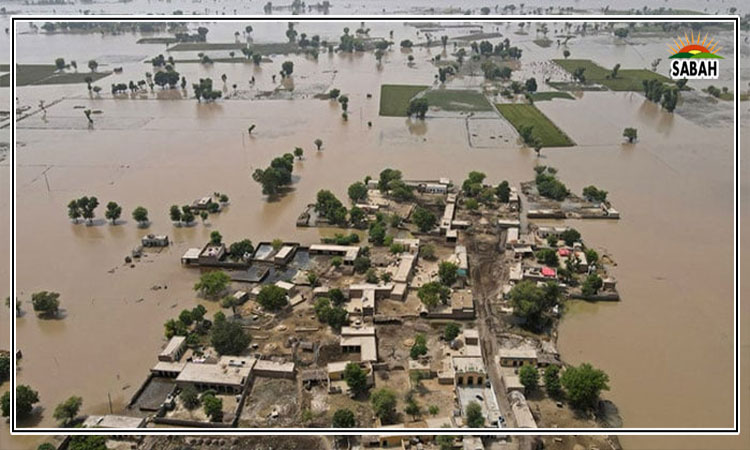Heal the land ۔۔۔۔Romina Khursheed Alam
The theme of World Environment Day this year, ‘Land restoration, desertification, and drought resilience’, reminds us of certain critical dynamics that are badly impacting the planet’s landscapes and calls upon us to take action to combat desertification by restoring ecosystems.
Prioritizing land restoration, leading to drought resilience, is important for a country such as Pakistan to protect our fertile land by combating desertification so that we can ensure our food security, biodiversity, and community resilience.
It is time to realize and act before it gets too late. Communities and development partners need to join hands with the government to invest in land restoration projects, making land management practices sustainable to check land degradation and enhance the ecosystem’s productivity. The reforestation efforts also need to be supported by all. It is an undeniable fact that environmental degradation and climate change are causing devastating effects on our land and its productivity, risking our food security.
Prime Minister Mian Muhammad Shehbaz Sharif is concerned about the devastating impacts of climate change. Since his strong diplomatic push, which resulted in the setting up of the Loss and Damage Fund at the COP27 in Sharm El Sheikh, the PDM and the current government under his leadership is taking Pakistan’s climate agenda forward seriously. The government sincerely believes that land restoration, desertification, and drought resilience are equally important as flood management.
A well-structured National Adaptation Plan 2023 and now the forthcoming National Flood Protection Plan call for nature-based solutions to major climate change threats such as floods, droughts, heatwaves, and resulting soil degradation and impacts on the ecosystems.
Pakistan has been experiencing both a high incidence of severe and deadly floods, heatwaves, and droughts in recent decades. The country is also faced with addressing land degradation and shortcomings in water management systems amid continuing debt crises and disasters. Pakistan could become a vanguard of climate resilience through policy discourse and strategic framework. However, materializing those frameworks requires climate finances, and the lackluster attitude of major climate-polluting countries to provide their proportionate share of climate funds is making this job difficult. Despite these constraints, the government is trying to make local resources available for resilience building against climatic hazards.
Dry spells are adding to the miserable situation manifested in the shape of droughts, which jeopardize agriculture and the already scarce water resources in the country. Moreover, drought causes further socio-economic challenges that deepen existing inequalities and hence perpetuate poverty.
By 2025, droughts may affect almost three-quarters of the world’s population. Pakistan is among the top 23 countries facing a major drought emergency. The Ministry of Climate Change acknowledges that desertification has emerged out of human activities and environmental degradation, leaving Pakistan scarred by its multiple impacts, including climatic hazards, loss of soil fertility, loss of biodiversity, and reduction in land productivity, which has increased the vulnerability of fragile local communities. Though droughts have always been a part of nature and the human experience, their occurrence has increased with massive deforestation and anthropogenic activities, causing a visible change in climate conditions.
Water stress is hitting the people hard due to a decrease in the water table and the drying up of rivers across the country with predominantly arid characteristics amid prolonged heat waves, delayed rains, and poor distribution of water. The per capita water availability in Pakistan has dropped from 5,060 cubic meters per annum in 1951 to only 908 cubic meters now. Our livestock is critically affected by the rising heat and lack of water in already water-stressed areas of Sindh and southern Punjab. The UNDP states that Pakistan will dry up by 2025 (by next year) if no urgent action is taken today. So, there is time now to act on conserving and sensibly using water resources.
According to a report, the Indus Delta has shrunk by a massive 92 per cent from 13,000 square kilometres in 1833 to only 1,000 sq kms. The new ambitious Living Indus initiative by the Ministry of Climate Change is currently underway and is working towards restoring the health of the Indus Basin. Pakistan has also launched an Ecosystem Restoration initiative under the theme of ‘Nature-Based Solutions’ to tackle critical issues such as desertification, loss of fertility, and droughts.
The ministry, with a clear analysis of the state of climate change, land restoration, and drought resilience, is contemplating improving drought preparedness and building drought resilience through multiple actions. The government is cognisant of the fact that we cannot stop droughts from happening, but we can prepare for them by conserving our water. The government, under the leadership of Prime Minister Shehbaz Sharif, is striving to achieve the voluntary Land Degradation Neutrality Targets by 2030.
Resilience and sustainability of society against drought can only be built through integrated water resources management, better and innovative climate-smart agriculture practices, and community empowerment. If we really want our communities to become resilient, the ecosystem restored, and the planet’s landscapes safeguarded for future generations, we have to put in place a system that increases water efficiency, soil conservation, and investment in drought-resistant technologies and an environment of cooperation and mutual learning from various countries and regions.
Deforestation and land degradation have a direct linkage, as deforestation in Pakistan’s northern regions causes soil erosion and land degradation. I am shocked by ‘World Counts’, which says that one football-field-equal forest vanishes every second, and since 2016, 28 million hectares of forest have been cut down every year on average across the globe.
Since 2000, the world noticed a 9.0 per cent reduction in tree cover. Largely, deforestation takes place for the greed of timber, land for cattle, crops, and other globally traded commodities, and for the construction of housing. Whatever the government, on its part, has been doing may not be enough as climate change, restoration of the ecosystem, water conservation, and other relevant areas need a whole-of-society approach. So, the people of Pakistan have to play a significant role along with the governments both national and provincial.
We as citizens and as a society need to grow more forests, go paperless, buy certified wood products and use forest-based products responsibly to ensure the sustainability of forests, recycle and buy recycled products, educate others, support sustainable agriculture practices, advocate for forest production policies, support indigenous rights, offset our carbon footprint, use renewable energy, and volunteer or donate to those who are working on preventing deforestation. We should preserve forests for the future of the planet. Forest products are generally recyclable so practice recycling efficiently.
The writer is the PM’s coordinator on climate change and environmental coordination.
Courtesy The News












